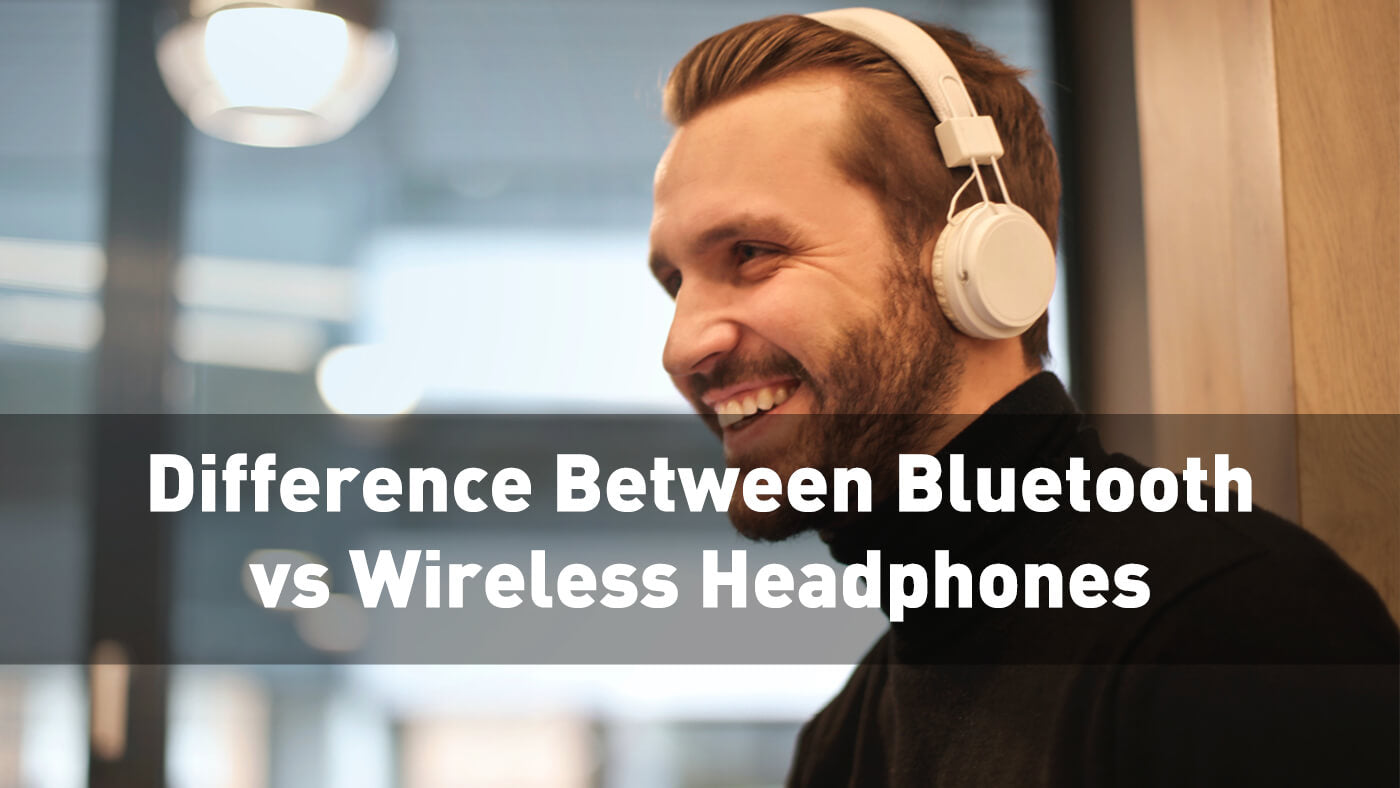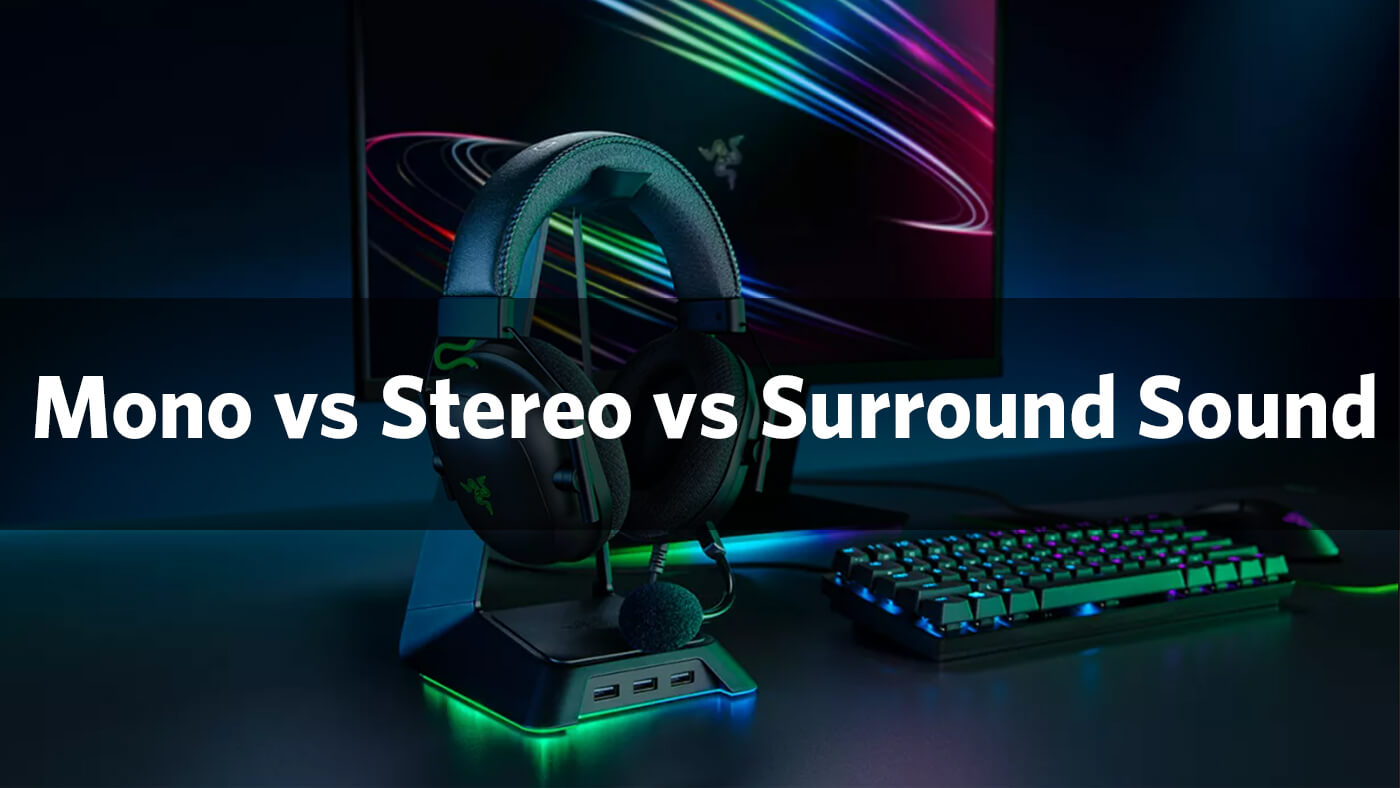Headphones are a necessary evil for many people nowdays. While most want to avoid wearing them as much as possible, there are times when they're a lifesaver – like during a long flight or commute.
The problem is that there are so many options available on the market today that it can be challenging to determine which kind of headphones to buy.
Wired vs. wireless headphones – which is the best option for you? Here's a deep look at some of the pros and cons of each type to help make your decision easier.
The Case For Wired Headphones!
There are a few different ways to connect headphones to your phone or music player. You can go wireless, or use a wired connection. Many people argue that wired headphones are the way to go, and there are a few good reasons for this.
Advantages Of Wired Headphones
Better sound quality
Wired headphones generally have better sound quality than wireless headphones. This is because there is no compression of the audio signal when using a wired connection. The sound quality is also not affected by any interference from other wireless devices. For these reasons, wired headphones are generally the preferred choice for audiophiles and those who are serious about sound quality.
Costs less and easy to repair
Wired headphones are also generally less expensive than wireless headphones. If they break, they can usually be repaired quite easily as well. On the other hand, wireless headphones are often more expensive to replace and can be difficult to repair. For example; you can buy a quality pair of wired headphones for around $50, whereas a comparable pair of wireless headphones would cost you at least $100.
Unlimited playtime
Another advantage of wired headphones is that they have unlimited playtime. You can use them easily as long as you prefer without having to worry about the battery running out. On the other hand, wireless headphones will eventually need to be recharged. For example, if you are on a long flight or want to use your headphones for an extended period, wired headphone are the way to go. Also, wired headphones are less likely to be affected by power outages than wireless headphones.
Easy to use
Wired headphones are also generally very easy to use. You just plug them into your phone or music player and you're good to go. With wireless headphones, you have to make sure they are paired with your device and within range. You also have to worry about re-pairing them if you move too far away from your device. It can be a true hassle, especially if you're using them on the go. The bottom line is that wired headphones are just simpler and easier to use.
Disadvantages Of Wired Headphones
Can Restrict Movement
The main disadvantage of wired headphones is that they can restrict your movement. It can be an issue if you're trying to do something active, like working out or going for a run. With wireless headphones, you don't have to worry about this because you are not tethered to your device. It is also worth noting that newer generations of wired headphones are much lighter and more comfortable to wear than older models.
Wires Can Be Fragile
Another downside of wired headphones is that the wires can be fragile and easily damaged. If you're not careful, then you can easily break the wires by accidentally pulling on them or stepping on them. Once the wires are damaged, they will need to be replaced. This can be a hassle and can be quite costly. As a result, you have to be careful with wired headphones and take good care of them.
Compatibility
Sometimes, you may have compatibility issues with wired headphones. For example, if you have an iPhone and want to use wired headphones, you need to make sure that they have a Lightning connector. If they don't, you won't be able to use them with your iPhone. With wireless headphones, you don't have to worry about this because they will work with any device that has Bluetooth. The bottom line is that wired headphones can be a bit more finicky when it comes to compatibility.
The Case For Wireless Headphones!
Wireless headphones are becoming increasingly popular, and there are several good reasons for this. They're very convenient. No longer do you have to deal with tangled cords or having to keep your phone within reach. You can simply put on your headphones and go about your day without having to worry about being tethered to your device. Below, we will check out a few of the other benefits & drawbacks of wireless headphones.
Advantages Of Wireless Headphones
Freedom Of Movement
The biggest advantage of wireless headphones is they allow you to move around freely. You can put them on and walk around without having to worry about getting tangled up in cords. It is especially useful if you are exercising or doing other activities where you need to be able to move around. Also, if you're traveling, you don't have to worry about finding a place to plug in your headphones.
Compatible With More Modern Devices
Another advantage of wireless headphones is that they're compatible with more modern devices. Many newer phones, tablets, and laptops don't have headphone jacks, so you need to use Bluetooth headphones. If you have a newer device, likely, you won't be able to use traditional wired headphones. Wireless headphones are also more convenient because you don't have to fumble around with cords when you're trying to answer a call or pause your music.
More Portable
Wireless headphones are also more portable than traditional wired headphones. They're smaller and don't have any cords that can get tangled. This makes them much easier to throw in your bag or carry with you on the go. Whenever you're traveling, it's always helpful to have a pair of headphones that you can easily take with you. Portability is the main reason why people choose wireless headphones over traditional ones.
No More Wires
This is presumably the most obvious benefit of wireless headphones: there are no wires! This means that you don't have to worry about tangles, knots, or any other type of wire-related frustration. You can simply put on your headphones and go about your day without having to worry about being tethered to your device. You can also take them off easily and put them away without having to deal with any cords.
Disadvantages Of Wireless Headphones
Requires Charging
The biggest disadvantage of the wireless headphones is that they require charging. Unlike traditional wired headphones, which you can simply plug into your device, wireless headphones need to be charged regularly. It can be a discomfort if you forget to charge them or if you're in the middle of using them and they run out of battery. Additionally, if you're using them for an extended period, you might need to charge them more often.
More Expensive
Another disadvantage of wireless headphones is that they're generally more expensive than traditional wired headphones. This is because they use more advanced technology and require more components. If you need an affordable set of headphones, wireless ones are probably not the best option. But, if you're willing to invest a bit more money, you can find some great wireless headphones that offer excellent sound quality. However, it's vital to remember that you get what you pay for, so don't expect miracles from a cheap pair of wireless headphones.
Repair Is Harder If Not Impossible
If something goes wrong with your wireless headphones, it can be very difficult to repair them. This is because they have so many small components and it's hard to access them. Additionally, if you need to replace a part, it can be difficult to find the right one. This is in contrast to traditional wired headphones, which are much easier to repair. Wireless headphones are also more delicate, so they're more likely to break if you drop them or if they're mishandled.
Connectivity And Pairing Issues
Another drawback of the wireless headphones is that they can sometimes have connectivity and pairing issues. If your headphones are not properly paired with your device, you might experience choppy sound or audio interruptions. Additionally, if there's any type of interference, such as from another wireless device, you might also experience these problems. It is less of a problem with newer wireless technologies, such as Bluetooth 5.0, but it's still something to keep in mind. If you're looking for a completely flawless audio experience, wired headphones are still the way to go.
Wired Vs. Wireless Headphones: Which One’s For You?
If you are in the marketplace for a new pair of headphones, you might be wondering if you should go wired or wireless. There are pros and cons to both kinds of headphones, so it’s important to know what you’re looking for before you make your purchase. Below, we break down the key differences between wired and wireless headphones so you can decide which type is right for you. Before you dive deep, watch video below.
Who Are Wired Headphones For?
Office Workers
Wired headphones are a great option for office workers and commuters who want to be able to enjoy their podcasts or music without having to worry about battery life. Because they’re plugged into a device, wired headphones will keep playing even if the battery runs out.
Musicians And Audiophiles
Wired headphones are also a good choice for musicians and audiophiles who want the highest quality sound possible. Because they’re directly connected to the audio source, wired headphones can deliver a truer sound than wireless headphones.
Gamers Who Can’t Afford To Experience Latency
Latency refers to the delay between when an audio signal is sent and when it’s received, and it can be a major problem for gamers. Wired headphones have virtually no latency, so they’re the best option for gamers who can’t afford to experience any lag.
People Who Are On A Budget
Wired headphones are typically more affordable than wireless headphones, so they’re a good option for people who are on a budget. If you’re searching for the maximum bang for the money, wired headphones are the way to go.
People Who Prefer Plug-And-Play
Wired headphones are also a good choice for people who prefer plug-and-play. Because they don’t require any batteries or setup, wired headphones are easy to use – just plug them in and you’re good to go. It is worth noting that some newer wireless headphones are just as easy to use as wired headphones.
Who Are Wireless Headphones For?
Athletes Or People With Active Lifestyles
Wireless headphones are a great option for athletes or people with active lifestyles. Because they’re not tethered to a device, wireless headphones give you the freedom to move around without being restricted by a cord.
Frequent Travelers
Wireless headphones are also a good choice for frequent travelers. Because they don’t have to be plugged into a device, wireless headphones are easy to pack and convenient to use on the go. Frequent travelers also don’t have to worry about losing or damaging a wired headphone cable.
Users Who Prefer More Freedom Of Movement
In general, people who prefer more freedom of movement will prefer wireless headphones. If you don’t like the feeling of being tethered to your device, wireless headphones are the way to go. Another drawback of the wireless headphones is they can be used with a variety of devices, including phones, tablets, and laptops.
Conclusion
So, which is better for you? Wired or wireless headphones? The answer really depends on your needs and preferences. If you want the best sound quality and don’t mind being tethered to your device, wired headphones are probably your best bet.
But if you want more freedom of movement and don’t mind sacrificing a little bit of audio fidelity, then go with wireless headphones.



